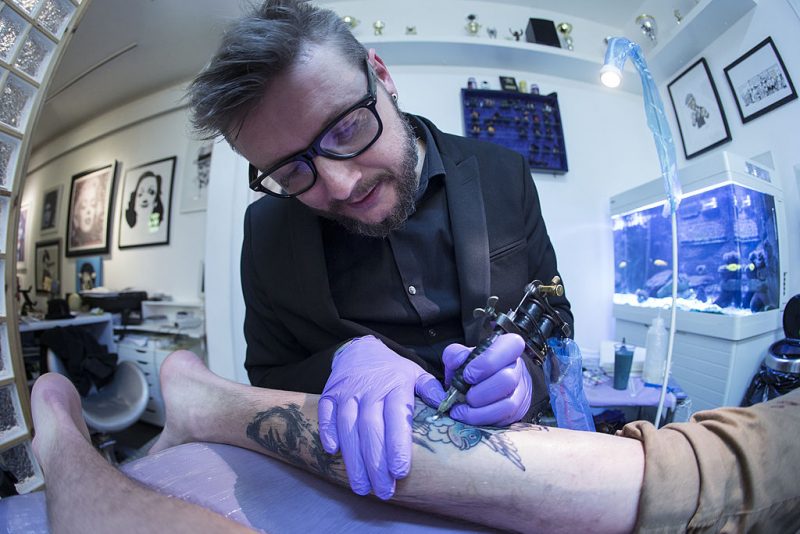
OAN’s James Meyers
12:07 PM – Wednesday, February 28, 2024
A new study has discovered that tattoo inks could be linked to cancer or organ failure.
An analysis of 54 inks commonly used in tattoo parlors across America has uncovered that a staggering 45 of them contained unlisted additives, including chemicals known to pose alarming health risks.
Multiple inks contained 2-phenoxyethanol, which can cause toxic effects in high doses. Researchers involved in the study found the most common additive to be polyethylene glycol, which is a compound that can cause acute renal failure.
The study was led by Jonn Swierk from the Department of Chemistry at Binghamton University, and was published this month in the journal Analytical Chemistry.
Swierk said the conducted study was to open people’s eyes to the products being used in tattoo parlors.
“We’re hoping the manufacturers take this as an opportunity to reevaluate their processes, and that artists and clients take this as an opportunity to push for better labeling and manufacturing,” he said.
The study comes a year after the Food and Drug Administration (FDA) issued guidance to tattoo ink manufacturers and distributors to help recognize if tattoo ink may have been contaminated.
There were 18 recalls of tattoo inks between 2003 and 2023 that were contaminated with a variety of microorganisms.
However, tattoos are regulated as a cosmetic product in the U.S., which means ingredients do not have to be approved by the FDA before use.
Meanwhile, more than 100 million Americans have at least one tattoo, according to the Pew Research Center.
Future research will look at even smaller concentrations of substances found in tattoo ink, researchers said.
“Our goal in a lot of this research is to empower artists and their clients. Tattoo artists are serious professionals who have dedicated their lives to this craft and they want the best possible outcomes for their clients,” Swierk said. “We’re trying to highlight that there are some deficiencies in manufacturing and labeling.”
The latest study is the first of its kind to look at pigments in inks sold in the U.S.
Stay informed! Receive breaking news blasts directly to your inbox for free. Subscribe here. https://www.oann.com/alerts

